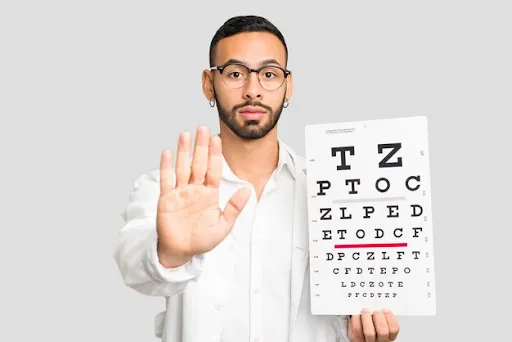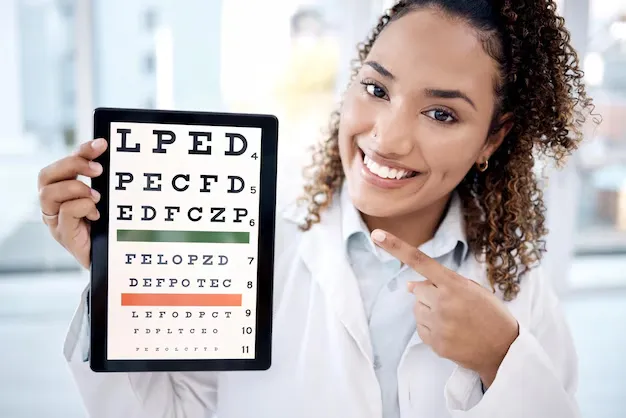Systemic Health Issues
How Routine Eye Exams Reveal Health Problems
FSDAVCFEBFEVSDDVFSD
FSDAVCFEBFEVSDDVFSD
FSDAVCFEBFEVSDDVFSD
The Connection Between Eye and Overall Health
Routine eye exams go beyond assessing vision; they provide valuable insights into your overall health. Many systemic conditions, such as diabetes, hypertension, and autoimmune disorders, often show early signs in the eyes before other symptoms appear. These exams serve as a vital preventive tool, helping to identify potential health issues at an early stage.
During an eye exam, optometrists closely examine the blood vessels, nerves, and other structures within the eyes. These detailed evaluations can reveal warning signs of systemic conditions, enabling early intervention. By detecting these indicators, optometrists can collaborate with other healthcare providers, contributing to timely treatment and better health outcomes for patients.
Routine eye exams go beyond assessing vision; they provide valuable insights into your overall health. Many systemic conditions, such as diabetes, hypertension, and autoimmune disorders, often show early signs in the eyes before other symptoms appear. These exams serve as a vital preventive tool, helping to identify potential health issues at an early stage.

During an eye exam, optometrists closely examine the blood vessels, nerves, and other structures within the eyes. These detailed evaluations can reveal warning signs of systemic conditions, enabling early intervention. By detecting these indicators, optometrists can collaborate with other healthcare providers, contributing to timely treatment and better health outcomes for patients.

Common Systemic Issues Detected Through Eye Exams
Eye exams are not only essential for vision correction but also for detecting systemic health conditions. Optometrists can spot early signs of diseases that may otherwise go unnoticed. For instance, diabetes often manifests as changes in the retina’s blood vessels, a condition called diabetic retinopathy. Early detection during an eye exam can help prevent further vision loss and serve as a critical step in managing blood sugar levels effectively.
Hypertension, or high blood pressure, is another condition that can be identified during an eye exam. Damage to the retina’s blood vessels, known as hypertensive retinopathy, can signal elevated blood pressure. Left untreated, this damage can lead to more severe health complications like strokes or heart disease. Early diagnosis through routine eye care can prompt timely interventions and reduce associated risks.
Autoimmune disorders, such as lupus or rheumatoid arthritis, often present with inflammation that impacts eye health. Symptoms like dry eyes, redness, or even more severe complications can be detected by optometrists. By identifying these signs, eye care professionals play a pivotal role in guiding patients toward appropriate medical care. Regular eye exams thus serve as a window to overall health, enabling early detection and better management of systemic conditions.
Signs Your Optometrist May Notice

Optometrists are trained to recognize subtle changes in eye health that may indicate systemic health issues. One key sign is retinal swelling or bleeding, which can suggest underlying conditions like diabetes or hypertension. These changes in the retina often develop before noticeable physical symptoms arise, allowing for early diagnosis and timely medical intervention. Similarly, yellowing of the eyes, or jaundice, can indicate liver problems, such as hepatitis or gallbladder disease, which might otherwise go undetected until they progress.

Changes in eye pressure, another critical observation during an exam, may signal glaucoma, a condition that can lead to irreversible vision loss if untreated. Elevated eye pressure can also be linked to systemic disorders like increased intracranial pressure. By identifying these signs, optometrists play a vital role in detecting and managing both eye-related and systemic conditions, emphasizing the importance of regular eye exams as part of overall health care.
Optometrists are skilled at identifying early signs of systemic conditions through subtle changes in eye health. Indicators such as retinal swelling or bleeding can signal underlying issues like diabetes or hypertension, which may not yet present with noticeable symptoms. Yellowing of the eyes (jaundice) is another warning sign, often linked to liver problems, such as hepatitis or gallbladder disease. Additionally, changes in eye pressure can point to glaucoma, a progressive condition that threatens vision, or even systemic concerns like increased intracranial pressure. These findings provide a critical first step in diagnosing broader health concerns.
Beyond eye health, these indicators alert patients to potential systemic conditions that require further investigation. Early detection allows for timely medical intervention, reducing the risk of complications and improving outcomes. By guiding patients toward appropriate care, optometrists play a crucial role in holistic health management. Routine eye exams are not just about vision they are a vital tool in maintaining overall well-being.
Why Regular Eye Exams Are Essential
Consistent eye exams are essential for preserving vision and promoting overall health. During these visits, optometrists can detect early signs of common eye conditions like glaucoma, cataracts, or macular degeneration before they progress to severe vision loss. They also assess changes in vision, ensuring patients receive timely updates to their prescriptions for optimal clarity and comfort. Regular checkups empower patients to address potential issues proactively, preventing complications and maintaining their quality of life.
Beyond vision care, eye exams offer valuable insights into overall health. Optometrists can identify symptoms of systemic conditions such as diabetes, hypertension, or autoimmune disorders through subtle changes in the eyes. These early warnings enable patients to seek appropriate medical care before these issues escalate. Scheduling yearly eye exams is a simple yet effective step toward safeguarding both your eyesight and your overall well-being. A commitment to routine care ensures a lifetime of healthier vision and improved quality of life.
Coordinating Care With Other Providers
Optometrists play a crucial role in the healthcare system by identifying signs of systemic health issues during routine eye exams. Conditions like diabetes, hypertension, or autoimmune disorders often reveal symptoms in the eyes that may go unnoticed elsewhere. Early detection in these cases is vital for preventing complications and promoting better health outcomes.
When systemic concerns are identified, optometrists don't work in isolation. They collaborate with specialists such as primary care physicians, endocrinologists, or cardiologists to ensure patients receive the necessary follow-up care.
Optometrists play a crucial role in the healthcare system by identifying signs of systemic health issues during routine eye exams. Conditions like diabetes, hypertension, or autoimmune disorders often reveal symptoms in the eyes that may go unnoticed elsewhere. Early detection in these cases is vital for preventing complications and promoting better health outcomes.
When systemic concerns are identified, optometrists don't work in isolation. They collaborate with specialists such as primary care physicians, endocrinologists, or cardiologists to ensure patients receive the necessary follow-up care. This referral process bridges the gap between eye health and overall health, providing a holistic approach to patient care.

By working closely with other healthcare providers, optometrists enhance the patient’s care journey. This teamwork ensures not only the treatment of immediate eye conditions but also the management of broader health concerns, fostering long-term wellness.
This referral process bridges the gap between eye health and overall health, providing a holistic approach to patient care.
By working closely with other healthcare providers, optometrists enhance the patient’s care journey. This teamwork ensures not only the treatment of immediate eye conditions but also the management of broader health concerns, fostering long-term wellness.
How Kleinwood Vision Supports Patient Health
At Kleinwood Vision, we understand that your health goes beyond just seeing clearly. Our comprehensive eye exams are designed to detect early signs of systemic health conditions, such as diabetes, hypertension, and autoimmune disorders, that may manifest in your eyes before you experience any symptoms. By catching these issues early, we provide you with the opportunity to take proactive steps toward better overall health.
We utilize advanced diagnostic tools, such as detailed retinal imaging and precise measurements of eye pressure, to gather crucial information about your eye health. These tools allow us to detect even the slightest changes in your eyes, which can indicate underlying health concerns. This approach not only helps maintain your vision but also serves as an important check on your overall well-being.
At Kleinwood Vision, we’re dedicated to offering personalized care to each of our patients. Our team takes the time to explain how your eye health may be connected to other aspects of your health and works with you to develop a plan for maintaining both. We believe that educating our patients helps them make informed decisions about their health and ensures they feel supported throughout their journey.
With a commitment to the highest standard of care, Kleinwood Vision combines cutting-edge technology and compassionate service. Whether you need a routine eye exam or have specific health concerns, trust our expert team to prioritize your vision and overall health, ensuring that every visit helps you see and feel your best.
Schedule Your Comprehensive Eye Exam Today
Protect your vision and overall health with routine eye exams at Kleinwood Vision. Our comprehensive eye exams not only assess your vision but also look for early signs of systemic health issues, such as diabetes, hypertension, and autoimmune disorders.

Protect your vision and overall health with routine eye exams at Kleinwood Vision. Our comprehensive eye exams not only assess your vision but also look for early signs of systemic health issues, such as diabetes, hypertension, and autoimmune disorders.
By detecting these concerns early, we provide you with the chance to address them before they become more serious. Our experienced optometrists use advanced diagnostic tools to ensure your eye health is thoroughly checked. Should any issues be found, we work closely with your other healthcare providers to ensure you receive the appropriate care.
By detecting these concerns early, we provide you with the chance to address them before they become more serious. Our experienced optometrists use advanced diagnostic tools to ensure your eye health is thoroughly checked. Should any issues be found, we work closely with your other healthcare providers to ensure you receive the appropriate care.
At Kleinwood Vision, we prioritize your well-being, offering expert care with a focus on prevention. Don’t wait for symptoms to appear, schedule your eye exam today and take the first step toward maintaining both your vision and overall health. Our comprehensive exams help identify potential health concerns early, giving you peace of mind.
At Kleinwood Vision, we prioritize your well-being, offering expert care with a focus on prevention. Don’t wait for symptoms to appear, schedule your eye exam today and take the first step toward maintaining both your vision and overall health. Our comprehensive exams help identify potential health concerns early, giving you peace of mind.
Learn More About Our Services
At Kleinwood Vision, we offer a wide range of services to ensure your vision and overall health are in optimal condition. Our myopia management program helps slow the progression of nearsightedness in both children and adults, safeguarding long-term eye health. We also provide specialty contact lenses tailored for various conditions, such as astigmatism or dry eyes, offering customized solutions for every patient’s needs.
Beyond vision correction, we use advanced diagnostic technology to identify early signs of systemic health issues that may affect your eyes. Our expert team is dedicated to giving you the highest standard of care, ensuring you receive the right treatment at the right time. Take control of your eye health by scheduling an eye exam today. Contact us for additional tips and insights on maintaining healthy vision, be sure to explore our blog and stay informed on best practices for eye care.

Contact Info
Hours of Operation
Mon - Fri | 9:00 AM - 5:00 PM
Sat - Sun | Closed
Holiday Hours: We are closed for the following holidays: New Years Day, Memorial Day, Independence Day, Labor Day, Thanksgiving Day, Christmas Day
© 2026 Kleinwood Vision. All rights Reserved.


